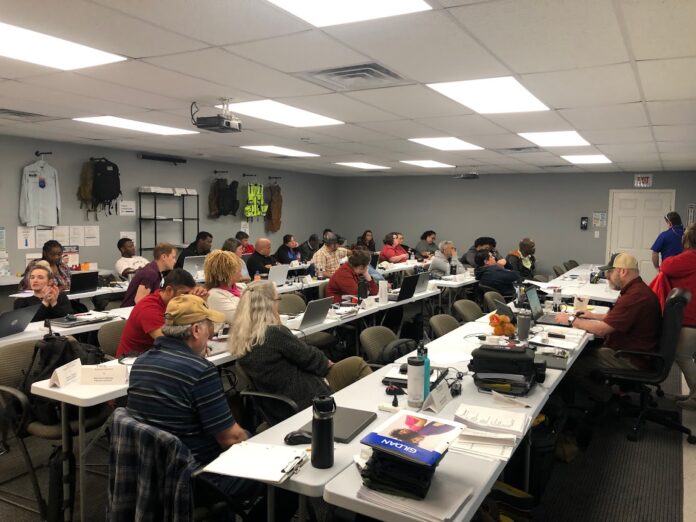The world of insurance is a multifaceted landscape, and at its core are the insurance adjusters. These professionals are tasked with evaluating claims, deciphering policy language, and ensuring fair settlements. To succeed in this challenging role, enrolling in insurance adjuster classes is often a crucial step. In this comprehensive guide, we will delve into the realm of insurance adjuster classes, their significance, and how they can help you attain an insurance adjuster license.
What Are Insurance Adjuster Classes?
Insurance adjuster classes are specialized training programs designed to provide aspiring adjusters with the knowledge and skills needed to excel in the field. These classes cover a wide range of topics, including insurance law, claims handling, ethics, and industry-specific software.
Why Are Insurance Adjuster Classes Essential?
- Comprehensive Education: Insurance adjuster classes offer a comprehensive education, ensuring you have a strong foundation in the essential principles and practices of the insurance industry.
- Meeting Licensing Requirements: In many states, completing an approved insurance adjuster class is a prerequisite for obtaining an insurance adjuster license. Without this education, you may not be eligible for licensure.
- Career Advancement: Even in states where it’s not mandatory, completing insurance adjuster classes can significantly enhance your career prospects. Employers often prefer candidates with formal training.
- Staying Current: The insurance industry is continually evolving. These classes help you stay up-to-date with the latest industry trends and regulations.
Understanding Insurance Adjuster Licensing
Insurance adjuster licensing requirements vary from state to state. To ensure you meet the necessary criteria, it’s crucial to understand the common elements involved.
Key Points about Licensing Requirements:
- Pre-License Education: Most states mandate that individuals complete a specific number of hours of pre-license education from an approved provider. These classes cover essential topics such as insurance law, ethics, and claims handling practices.
- Licensing Exam: After completing the required education, you’ll need to pass a licensing exam. These exams are designed to assess your knowledge of insurance regulations and your ability to apply them in real-world scenarios.
- Application Process: To obtain your license, you must submit an application to your state’s insurance regulatory authority. This often includes providing proof of completing the required education and passing the licensing exam.
- Background Check: Some states may conduct a background check as part of the licensing process to ensure that applicants meet certain ethical standards.
Benefits of Enrolling in Insurance Adjuster Classes
Now that we’ve covered the basics of insurance adjuster classes and licensing requirements, let’s explore the significant benefits of enrolling in and completing such classes.
1. Meeting Licensing Requirements
One of the most crucial benefits is that insurance adjuster classes help you meet the licensing requirements of your state. Without a valid license, you cannot legally practice as an insurance adjuster.
2. In-Depth Knowledge
Insurance adjuster classes provide you with in-depth knowledge of the insurance industry. You’ll learn about insurance policies, coverage types, regulations, and the claims process. This knowledge is invaluable in your day-to-day work.
3. Skill Development
These classes focus on developing the specific skills you need as an insurance adjuster, such as negotiation, communication, and claims assessment. You’ll also become proficient in using industry-specific software.
4. Career Advancement
Completing insurance adjuster classes can open doors to career advancement. Whether you’re starting your career or aiming to move up the ladder, having formal education and training on your resume can make you a more attractive candidate to employers.
Choosing the Right Insurance Adjuster Classes
Now that you understand the importance of insurance adjuster classes, it’s essential to know how to choose the right ones.
Key Considerations:
- Accreditation: Ensure that the classes are accredited or approved by your state’s insurance regulatory authority. This is crucial for meeting licensing requirements.
- Course Content: Review the curriculum to ensure it covers the topics required for licensing in your state and aligns with your career goals.
- Delivery Method: Consider whether you prefer in-person or online classes. Choose the delivery method that suits your schedule and learning style.
- Cost: Compare the costs of different classes, taking into account tuition, materials, and any additional fees. Keep in mind that this is an investment in your career.
Conclusion
In the complex world of insurance, insurance adjuster classes are your stepping stones to success. They equip you with the knowledge and skills you need while ensuring you meet insurance adjuster licensing requirements. Whether you’re beginning your career or looking to advance, enrolling in reputable classes is a strategic move. So, don’t hesitate—embark on your journey into the world of insurance adjuster education and pave the way for a rewarding and prosperous career in this dynamic industry. Whether you’re beginning your career or looking to advance, enrolling in reputable classes is a strategic move. So, don’t hesitate—embark on your journey into the world of insurance adjuster education and pave the way for a rewarding and prosperous career in this dynamic industry.

